Professor Emeritus Elihu Katz — Founding Figure in Communication — Passes Away at 95
A sociologist and media scholar, Katz made substantial contributions in the areas of media effects, diffusion, and media events, and was a cherished friend and mentor.
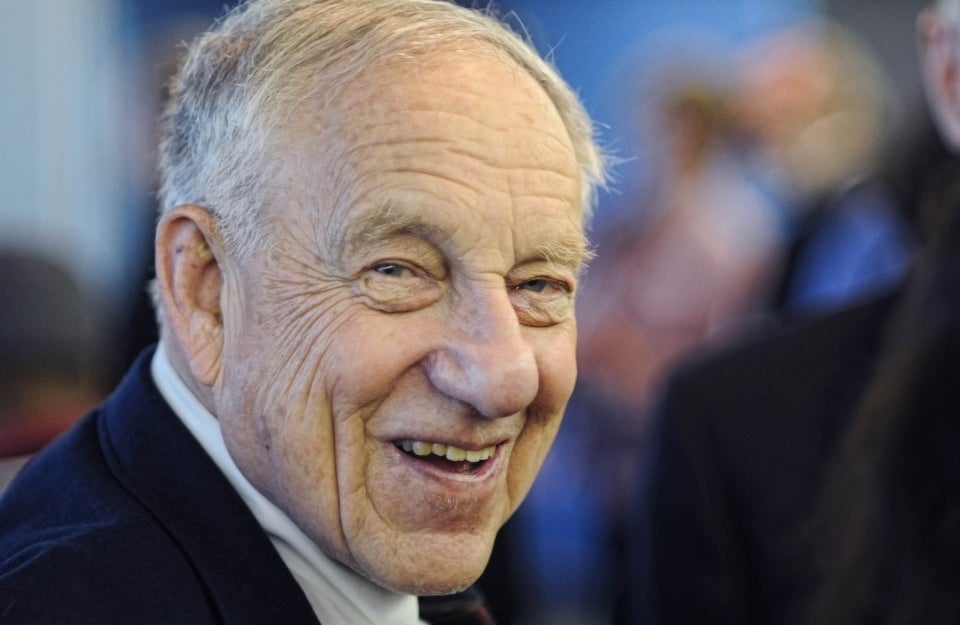
Elihu Katz in 2008.
The Annenberg School for Communication is deeply saddened to announce that Distinguished Trustee Emeritus Professor Elihu Katz has passed away at the age of 95. Katz was a foundational figure in the field of media studies, was also an Emeritus Professor of Sociology and Communication at Hebrew University of Jerusalem.
An American Israeli sociologist and media scholar, Katz made substantial contributions to the field of communication, specifically in the areas of media effects, diffusion, uses and gratifications and reception, and media events.
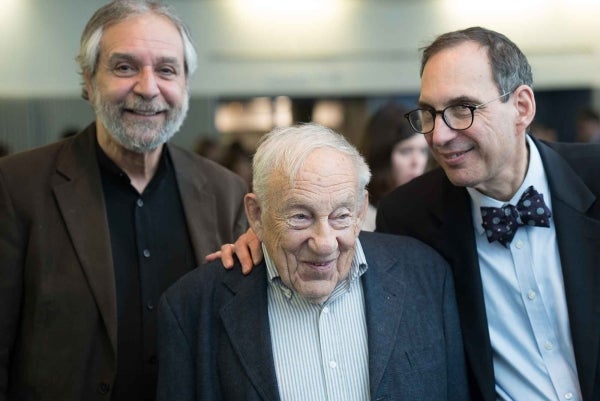
As part of the collection of his scholarly papers held by the Annenberg School for Communication Library Archive, Katz worked with archivists to prepare the following biography:
Elihu Katz was born on May 31, 1926 in Brooklyn, New York to parents of Eastern European Jewish descent. As a child he attended the Yeshiva of Flatbush, where he learned Hebrew at age 6. Katz’s earliest aspiration was to be a circus manager, but after discovering that it would be nearly impossible to wrangle lions, tigers, bears, and observe the Sabbath, he abandoned his big top dreams, focusing instead on becoming a journalist. It was in pursuit of this goal that Katz, following his graduation from Midwood High School in 1944, began a B.A. at Columbia College in Manhattan. His studies were interrupted, however, by a stint in the United States Army from 1944-1946, during which he was trained as a Japanese interpreter at the University of Chicago, and stationed briefly overseas.
Returning to Columbia upon the conclusion of his military service, Katz completed his undergraduate degree in 1948. He continued at Columbia as a graduate student, having been drawn to a program in the Department of Sociology, which had strengths in public opinion and communication and was headed by two men preeminent in the sociological field: Paul F. Lazarsfeld (Katz’s soon-to-be mentor), and Robert K. Merton. Katz took a concurrent job at the affiliated Bureau for Applied Social Research, an arrangement then common. Leo Lowenthal of Frankfurt School renown was also involved with the Department, preparing for his position as Research Director of the Voice of America. As Lowenthal’s student, Katz obtained his M.A. in 1950 with a thesis titled The Happiness Game, which dealt with fan mail to a radio personality.
Around this time, Katz met Ruth Torgovnik — a young musicologist and Israeli cultural emissary — through the course of his involvement with Columbia’s Intercollegiate Zionist Federation of America. They would marry in 1951, and have two children, Matthew and Nathaniel.
Following his work with Lowenthal, Katz inherited an unfinished study by Lazarsfeld and others born of efforts that culminated in 1944’s The People’s Choice. Therein, Lazarsfeld had suggested the highly influential model of a “two-step flow of communication,” which challenged the popular assumption that the media produced powerful effects in an atomized, passive mass audience, and instead asserted the importance of person-to-person exchange and agency in deliberative processes. Katz’s analysis and shaping of the data from the incomplete, follow-up study led not only to his dissertation, but also the publication — coauthored with Lazarsfeld — of Personal Influence: The Part Played by People in the Flow of Mass Communication in 1955. The book proved monumental to the field, and its focus on the juncture of mass media and interpersonal communication would be a prime conceptual mover in Katz’s career.
In 1954, Katz officially left the Bureau. Like many of his Columbia colleagues, he took a position in the University of Chicago’s Department of Sociology. Soon thereafter, in addition to Chicago, Katz assumed a post at the Hebrew University of Jerusalem in 1956, where he set up the Communications Institute with Michael Gurevitch and Dina Goren in 1965. He also assumed a role in the mid-1960s at the Israel Institute of Applied Social Research (IIASR), which was modeled after Lazarsfeld’s Columbia Bureau.
At Chicago, Katz proceeded in exploring research domains suggested by the implications of Personal Influence—the microcosm of decision-making giving way to the diffusion of influence amongst and across groups. Looking at the importance of both the media and interpersonal networks, Katz, along with James Coleman and Herbert Menzel, tracked the adoption of a new drug by various communities of physicians. The researchers’ efforts eventually resulted in the 1966 publication of Medical Innovation: A Diffusion Study. Katz then extended his treatment of spreading novelty from individuals to include municipalities’ acceptance of fluoridation, coming out in 1969 with The Politics of Community Conflict: The Fluoridation Decision, alongside coauthors Robert Crain and Donald Rosenthal.
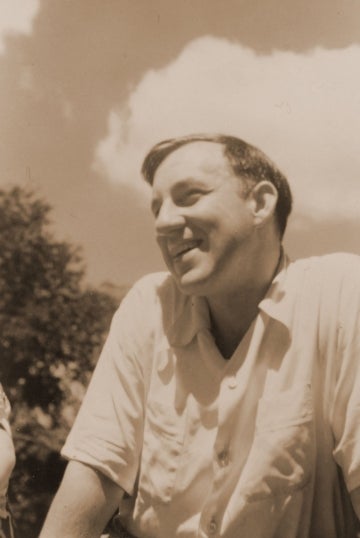
Much of Katz’s work in Jerusalem during this period was motivated by the huge influx of immigrants to Israel at the end of the 1950s, and the difficulties of productive intercultural negotiation. Together with Brenda Danet, Katz studied, among other things, the interactions of passengers and bus drivers, appeals to customs agents, and the justifications offered by supplicants when asking favors of God in prayer. These projects, and similar undertakings by others, are laid out in the 1973 Bureaucracy and the Public: A Reader in Official-Client Relations.
Due in large part to certain communication deficiencies foregrounded during the course of the Six-Day War, Israeli officials decided in 1967 to expand the nation’s broadcast presence beyond radio. Katz, ever peregrinatious, took leave of his Jerusalem and Chicago academic appointments for two years in order to concentrate the whole of his energies on heading Israel’s nascent television service. Although his tenure was brief, the fecund ground it sowed for him would yield interesting opportunities in the future. He left the service in 1969, returning to the Hebrew University and IIASR — but not Chicago — where he began studying Israeli secularization and leisure.
As a direct result of his television work, Katz was asked by the BBC in 1975 to appraise the state of broadcasting in England, and produced the 1977 report Social Research on Broadcasting: Proposals for Further Development. The same year, in collaboration with George Wedell, Katz published Broadcasting in the Third World: Promise and Performance, on the politically idealistic establishment, and ensuing diversionary ramifications, of television projects in developing countries. This continued involvement with TV, especially his BBC report, brought Katz to the attention of the University of Southern California’s Annenberg School for Communication, and in 1978 he began teaching there — commuting between Los Angeles and Jerusalem.
All the while Katz had continued pursuing issues raised by his work with Lazarsfeld —specifically, the empowerment of the audience at the expense of omnipotent mass media. Now that viewers and listeners had been reactivated, so to speak, Katz and others were interested in the ways by which that activity manifested in relation to mass media, and to what ends.
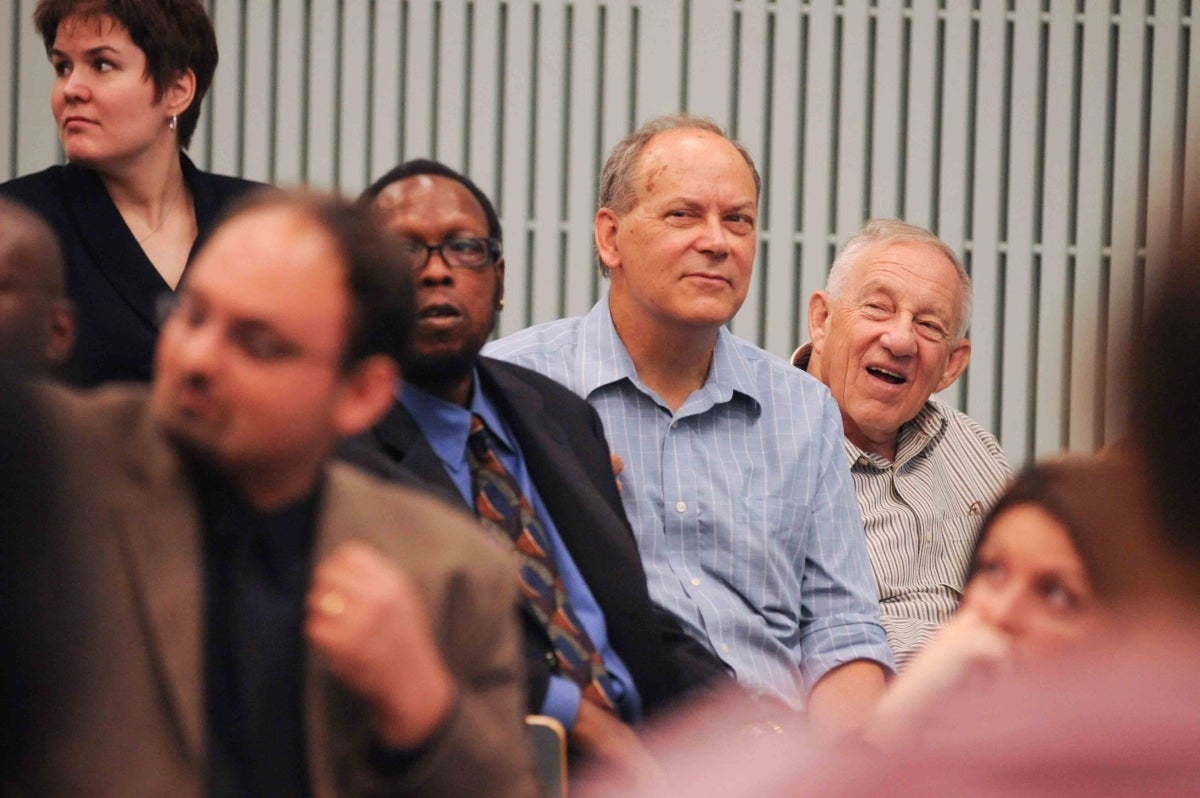
In 1974, he and Jay Blumler produced an edited volume on the subject, The Uses of Mass Communication: Current Perspectives on Gratifications Research. Katz’s efforts in this area would later find their most articulated expression in 1990’s The Export of Meaning: Cross-Cultural Readings of Dallas, which detailed the reception studies he conducted with Tamar Liebes, wherein they explored the sundry audience decodings of the primetime soap opera by individuals of diverse cultural background.
If The Export of Meaning represented Katz’s expression of a maximally enervated mass media — in the “limited effects” tradition inaugurated by Personal Influence — then his next book, Media Events: The Live Broadcasting of History, returned some of the media’s potency. The inspiration for Media Events began in Jerusalem with Katz’s, and his collaborator Daniel Dayan’s, revisitation of televised events such as Egyptian President Anwar Sadat’s 1977 visit to Jerusalem. Their initial curiosity launched a fifteen-year project to understand the social implications and ramifications of large-scale spectacles, which demand the simultaneous attention of a whole nation, or the world, and result in the elaborate enactment of mediated rituals serving to consolidate group identities and direct public opinion.
Throughout the 1990s, as scientific director of the Guttman Institute (formerly the IIASR), Katz was also involved in survey work focused on the views of Israeli citizens relating to the major social and political happenings of the day. His efforts resulted in numerous reports and publications, including the books The Jewishness of Israelis: Responses to the Guttman Report and Negotiating Jerusalem.
In 1993, after leaving USC and officially retiring from (but maintaining some involvement with) the Hebrew University, Katz joined the faculty of the other Annenberg School for Communication at the University of Pennsylvania, where he established the post-doctoral Annenberg Scholars Program.
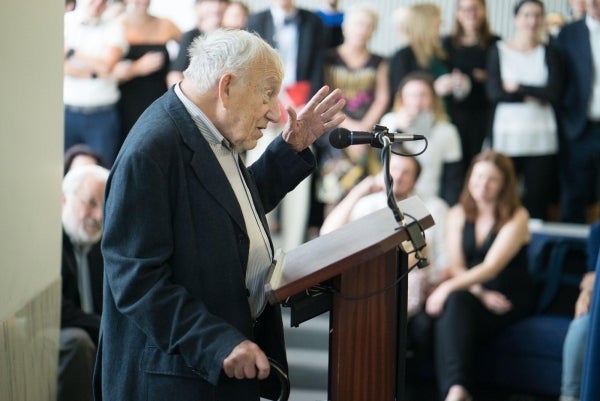
Katz’s work in this period was born of his enduring concern with diffusion, which led him to a conceptual rediscovery of the French sociologist Gabriel Tarde. In particular, Katz argued that Tarde’s essay of 1898, “Opinion and Conversation,” acted as an incredibly prescient theoretical forerunner to much that had gone on in communication scholarship since — anticipating everything from “agenda setting,” to Lazarsfeld’s “two-step flow,” to the diffusion of innovation, and even the aggregation of public opinion. His efforts, and those of coauthors Christopher Ali and Joohan Kim, culminated in 2014’s Echoes of Gabriel Tarde: What We Know Better or Different 100 Years Later — a hypertext “dialogue” examining the development of communication through a Tardean lens.
In 2014 Katz retired from the Annenberg School and settled year-round in Jerusalem.
In 2015, he donated his collection of 2,000 books to the department of communication at Ben-Gurion University of the Negev, establishing the Elihu Katz Collection in Communication Studies.
Three years later, Katz received an honorary doctorate from the University of Pennsylvania as well as the Steven H. Chaffee Career Achievement Award from the International Communication Association.
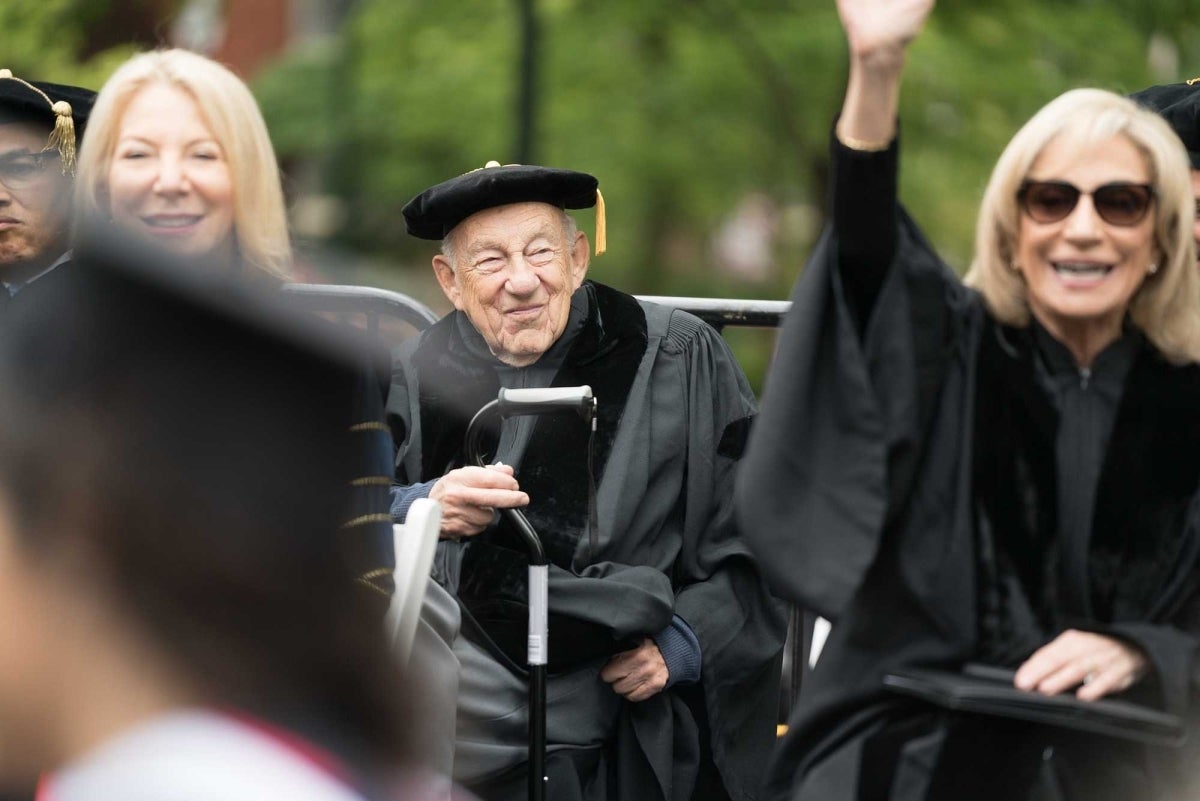
He remained active in research and writing up until the time of his passing and a deeply valued friend and mentor to generations of scholars.
The Annenberg community sends its deep condolences to his wife, Ruth Katz, a musicologist and Professor Emerita at Hebrew University of Jerusalem, and their family.



